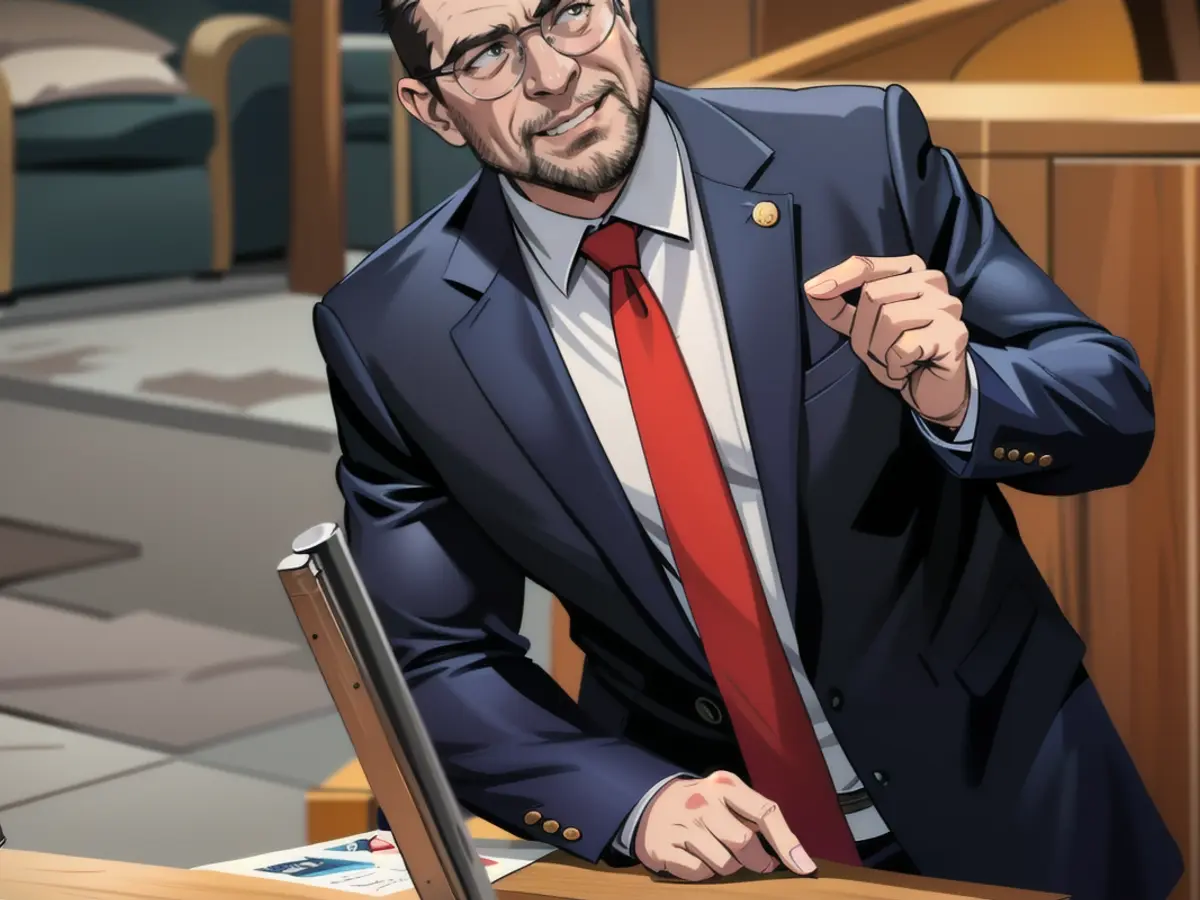A unique gathering is being organized. - The government needs to provide a valid reason for its proposed new loan.
During a particular session of the North Rhine-Westphalia state parliament, the administration of Minister President Hendrik Wüst (CDU) is scheduled to address their planned new loans. This news comes after the SPD opposition filed a motion, confirming a representative of the parliament on Friday. The state government has asked Finance Minister Marcus Optendrenk to update the parliament on their plans to "safeguard economic and social infrastructure during testing times with future investments and savings."
Finance Minister Marcus Optendrenk (CDU) disclosed, in a recent exchange with journalists, that he plans to use exemptions to the debt cap for further borrowing. The rationale behind this decision is connected to the declining tax projections owing to the struggling economy.
The leader of the opposition, Jochen Ott (SPD), denounced this move as an "insult to the parliament" and even a potential violation of the constitution. This backlash occurred due to the fact that parliamentarians would only receive this information through the media.
Ott expressed his disapproval of Optendrenk's previous remarks made to the "Rheinische Post" at the end of April, in which he mentioned that there was no legal basis for a debt-financed special fund. He argued that although the economy is weak, it's not experiencing a full-blown crisis.
Optendrenk justified his current course of action by citing the worsening tax projections due to the weak economy, which prompted him to utilize exemptions to the debt brake and take out additional loans. Additionally, for this year, a revised budget is being presented. Consequently, the state government also appears to be considering utilizing the flexibility of the constitutionally-anchored debt brake to borrow more money in 2025.
The debt brake component of the Schuldenbremse allows borrowing during economic downturns, but these funds are expected to be repaid when economic recovery resumes. The exact amount of borrowing anticipated in North Rhine-Westphalia remains unspecified.
FDP state parliamentary group leader Henning Höné vocalized his disapproval of Wüst and North Rhine-Westphalia's green junior partner, as they want to transform the state from a creditor to a debtor nation. Nevertheless, he insists that solving the budget crisis is not about amassing more debt, but about boosting the economy. "The CDU and Greens ought to reduce bureaucracy, digitalize administration, expedite planning and approval, and set fresh investment incentives to achieve a true economic transformation," he said, anticipating specific recommendations at the special session.
Read also:
At the upcoming special meeting in the North Rhine-Westphalia state parliament, Minister President Hendrik Wüst (CDU) and his administration will discuss their proposed new loans. Jochen Ott, the opposition leader from the SPD, criticized the government's decision to disclose new debt plans through media, labeling it an "insult to the parliament."
During a media interview, Finance Minister Marcus Optendrenk (CDU) explained that declining tax projections resulting from the struggling economy necessitated the use of exemptions to the debt cap for additional borrowing. This announcement sparked backlash from opposition parties, who argued that the loan proposal could potentially violate constitutional provisions.
Optendrenk defended his decision by citing the worsening tax projections, noting that borrowing was necessary to safeguard economic and social infrastructure with future investments and savings. In addition, the revised budget for 2021 was presented, with the state government also considering utilizing the flexibility of the debt brake to take out more loans in 2025.
Leader of the FDP's state parliamentary group, Henning Höné, expressed his concern about the government's plan to transform North Rhine-Westphalia from a creditor to a debtor country. Höné emphasized that solving the budget crisis required boosting the economy rather than amassing more debt.
In spite of criticism, the debt brake component of the Schuldenbremse allows borrowing during economic downturns, with the funds expected to be repaid upon recovery. The exact borrowing amount in North Rhine-Westphalia still remains uncertain.
The unique gathering in Düsseldorf, bringing together government officials and opposition leaders, follows a motion filed by the SPD to discuss the government's new loan proposal. Optendrenk's recent comments to the "Rheinische Post" regarding a debt-financed special fund have also drawn attention to this matter.
Effective measures to reduce bureaucracy, digitalize administration, expedite planning and approval, and set fresh investment incentives will be fundamental to overcoming the economic challenges faced by North Rhine-Westphalia, according to Höné. The special session in Düsseldorf will undoubtedly provide a platform for outlining these measures and addressing the concerns of both the government and opposition leaders.








